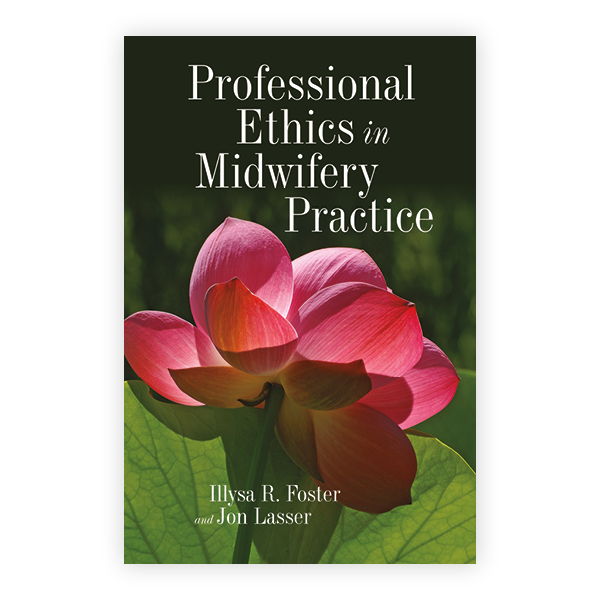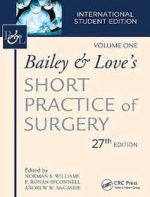Professional Ethics in Midwifery Practice is an applied ethics book designed for both students and practicing midwives to build ethical thinking in the context of daily practice. This unique text uses an accessible writing style and includes chapters on diversity and justice, informed consent, multiple relationships, confidentiality and privacy, scope of practice, and others. Realistic case examples throughout the text encourage critical thinking in applied ethics. The authors present a unique model for midwives’ ethical thinking and appendices include widely used codes of ethics in the field.
Professional Ethics in Midwifery Practice First Edition
KShs 14,140.00
Professional Ethics in Midwifery Practice is an applied ethics book designed for both students and practicing midwives to build ethical thinking in the context of daily practice. This unique text uses an accessible writing style and includes chapters on diversity and justice, informed consent, multiple relationships, confidentiality and privacy, scope of practice, and others. Realistic case examples throughout the text encourage critical thinking in applied ethics. The authors present a unique model for midwives’ ethical thinking and appendices include widely used codes of ethics in the field.
1 in stock
Related products
-
Bailey & Love’s Essential Clinical Anatomy 27th Edition
KShs 20,160.00Bailey & Love is the world famous textbook of surgery. Its comprehensive coverage includes the scientific basis of surgical practice, investigation, diagnosis, and pre-operative care. Trauma and Orthopaedics are included, as are the subspecialties of plastic and reconstructive, head and neck, cardiothoracic and vascular, abdominal and genitourinary surgery. The user-friendly format includes photographs, line diagrams, learning objectives, summary boxes, biographical footnotes, memorable anecdotes and full-colour page design. This book’s reputation for unambiguous advice make it the first point of reference for student and practising surgeons worldwide.
-
Smith and Aitkenhead’s Textbook of Anaesthesia, 7th Edition
KShs 18,612.00This highly successful textbook is internationally renowned as a core text for trainee anaesthetists and is essential reading for candidates for the Fellowship of Royal College of Anaesthetists and similar examinations. The previous 6th edition was awarded First Prize at the BMA Medical Book awards.
The book provides full coverage of the sciences underpinning practice in anaesthesia, critical care and pain management together with details of clinical anaesthesia and perioperative care. In combining these aspects, a generation of anaesthetists have found the textbook invaluable during the first few years of training as well as when preparing for the FRCA and similar professional examinations.
The goal for this Seventh Edition has remained to equip the reader with the basic knowledge and practical considerations required to administer anaesthesia and perioperative care for a whole range of surgical conditions in patients with all common medical comorbidities. Reflecting the expanding role of anaesthesia beyond the operating theatre it also includes essential material related to safety and quality assurance, consent, resuscitation, intensive care medicine, pre-hospital care and chronic pain management.
-
Pocket Tutor Orthopaedics
KShs 5,500.00Titles in the Pocket Tutor series give practical guidance on subjects that medical students and foundation doctors need help with “on the go”, at a highly affordable price that puts them within reach of those rotating through modular courses or working on attachment.
- Common investigations (ECG, imaging, etc)
- Clinical skills (patient examination, etc.)
- Clinical specialties that students perceive as too small to merit a textbook (psychiatry, renal medicine)
Key points
- Practical, accessible introduction to a subject that students find daunting, but which juniors will encounter as part of orthopaedic and emergency rotations
- Logical, sequential content: relevant basic science; then chapters devoted to the clinical essentials of orthopaedics and the disorders and injuries seen most commonly in practice
- Descriptions of common disorders are enhanced by Clinical Scenarios (Patient presents with…), which help students and trainees to recognise and manage common presenting problems
-
Management Principles for Health Professionals
KShs 7,420.00Management Principles for Health Professionals is a practical guide for new or future practicing healthcare managers. The customary activities of the manager―planning, organizing, decision making, staffing, motivating, and budgeting―are succinctly defined, explained, and presented with detailed examples drawn from a variety of health care settings. Students will learn proven management concepts, techniques, models, and tools for managing individuals or teams with skill and ease. The Eighth Edition continues to present foundational principles of management in the context of contemporary health care. With timely coverage of such topics as medical cost sharing; use of robots; ER by appointment; increased use of observation units; renewed use of flextime staffing and scheduling; use of social media on the job, and more, this thoroughly updated text addresses the latest trends and issues that today’s health care manager is likely to encounter. Key Features – Presents 2 new tools ―The Manager’s Wheel Book and the Management Reference Portfolio ― to help new managers better understand their role and responsibilities and to aid existing managers in understanding their organization in detail – Covers managing care in a wide variety of health care settings (urgent care centers, specialty clinics, home care, etc.) outside of the traditional hospital setting. – Addresses technology and its impact, including eVisits/telemedicine, implementation of electronic health records, connectivity and the expectation that workers will respond during off hours via email and instant messaging, etc. – Offers expanded coverage on the importance and impact of corporate culture, the values of transparency and accountability, leadership style, and competitiveness. – Includes detailed examples of reports, plans, directives, union contracts, and more.
-
Nelson Textbook of Pediatrics, 2-Volume Set, 21st Edition
KShs 25,200.00Nelson Textbook of Pediatrics – the reference of choice among pediatricians, pediatric residents, and others involved in the care of young patients. This fully revised edition continues to provide the breadth and depth of knowledge you expect from Nelson, while also keeping you up to date with new advances in the science and art of pediatric practice. Authoritative and reader-friendly, it delivers the information you need in a concise, easy-to-use format for everyday reference and study. From rapidly changing diagnostic and treatment protocols to new technologies to the wide range of biologic, psychologic, and social problems faced by children today, this comprehensive 2-volume reference keeps you on the cutting edge of the very best in pediatric care.
Key Features-
- Includes more than 70 new chapters, including Postural Orthostatic Tachycardia Syndrome (POTS), Rare and Undiagnosed Diseases, Approach to Mitochondrial Disorders, Electronic Nicotine Delivery Systems, Zika, update on Ebola, Epigenetics, Autoimmune Encephalitis, Global Health, Racism, Media Violence, Strategies for Health Behavior Change, Positive Parenting, and many more.
-
- Features hundreds of new figures and tables throughout for visual clarity and quick reference.
-
- Offers new and expanded information on CRISPR gene editing; LGBT health care; gun violence; vaccinations; immune treatment with CAR-T cells; new technology in imaging and genomics; new protocols in cancer, genetics, immunology, and pulmonary medicine; and much more.
-
- Provides fresh perspectives from four new associate editors: Nathan J. Blum of The Children’s Hospital of Philadelphia; Karen Wilson of Mt. Sinai School of Medicine in New York; Samir S. Shah of Cincinnati Children’s Hospital Medical Center; and Robert C. Tasker of Boston Children’s Hospital.
-
- Provides regular updates online, written exclusively for Nelson.
-
- Remains your indispensable source for definitive, evidence-based answers on every aspect of pediatric care.
-
- Enhanced eBook version included with purchase. Your enhanced eBook allows you to access all of the text, figures, and references from the book on a variety of devices.
Author InformationBy Robert M. Kliegman, MD, Professor and Chair Emeritus, Department of Pediatrics, Medical College of Wisconsin, Children’s Hospital of Wisconsin, Milwaukee, Wisconsin and Joseph St. Geme, MD, Chair, Department of Pediatrics, Professor of Pediatrics and Microbiology, Perelman School of Medicine at the University of Pennsylvania; Physician-in-Chief, Leonard and Madlyn Abramson Endowed Chair in Pediatrics, Children’s Hospital of Philadelphia, Philadelphia, Pennsylvania -
-
Oxford Handbook of Clinical Specialties (Oxford Medical Handbooks
KShs 6,580.00Now in its 25th year, the Oxford Handbook of Clinical Specialties has been revised and updated by a trusted author team to bring you practical, up-to-date clinical advice and a unique outlook on the practice of medicine. Twelve books in one, this is the ultimate guide to the core clinical
specialties for students, junior doctors, and specialists.This edition features a new and improved referencing system guided by a team of junior doctors, ensuring that the text is packed with valuable references to the most salient data and guidelines across the specialties. Each chapter has been updated on the advice of a team of specialists, to bring you
everything you need for any eventuality on the ward or in the field. This essential handbook guides the reader through the management of an unprecedented spectrum of conditions and eventualties, from sexual health to major incident management. Compact and filled with high quality artwork, directions
to further reading, and wise advice, this book is an ideal resource for revision and reference on the go.With its companion volume, the Oxford Handbook of Clinical Medicine, the Oxford Handbook of Clinical Specialties offers a unique perspective on the practice of medicine. Filled with wit, wisdom, and humanity, this book draws on literature, history, and personal experience to teach a philosophy of
medicine that always puts the patient at the centre of compassionate care. It is a trustworthy companion for anyone with the spirit of self-improvement and a passion for their practice. -
Davidson’s Principles and Practice of Medicine, 24th Edition(paperback)
KShs 10,640.00Well over two million medical students, doctors and other health professionals around the globe have owned a copy of Davidson’s Principles and Practice of Medicine since it was first published over 70 years ago. Now in its 24th Edition, this thoroughly updated textbook describes the pathophysiology and clinical features of the most frequently encountered conditions in the major specialties of adult medicine, and explains how to recognise, investigate, diagnose and manage them. Taking its origins from Sir Stanley Davidson’s much-admired lecture notes, Davidson’s has endured because it keeps pace with how modern medicine is taught and provides a wealth of trusted information in an easy-to-read, concise and beautifully illustrated format.
Key features:
-
- Part 1 ‘Fundamentals of Medicine’ – provides an account of the principles of genetics, immunology, infectious diseases, population health, oncology and pain management, along with a discussion of the core principles behind clinical decision-making and good prescribing.
-
- Part 2 ‘Emergency and Critical Care Medicine’ – covers medical emergencies in poisoning, envenomation and medicine in austere environments, as well as common presentations in acute medicine and the recognition and management of the critically ill.
-
- Part 3 ‘Clinical Medicine’– covers the major medical specialties, each thoroughly revised and brought fully up to date. A new section on COVID-19 has been added and the impact of this infection is described throughout the book.
-
- Clinical Examination overviews – extended and updated to summarise the main elements for each system.
-
- Presenting Problems sections – provide a clear pathway for the assessment of and approach to the most common complaints in each specialty.
-
- Practice Point summaries – detail the practical skills that medical students and junior doctors must acquire.
-
- Emergency boxes – emphasise the core knowledge needed to manage acutely ill patients.
-
- In Old Age, In Pregnancy and In Adolescence boxes – highlight differences in the practice of medicine in these patient groups, and illustrate the interfaces between medical, obstetric and paediatric services.
-
- The text is extensively illustrated – with over 1000 diagrams, clinical photographs, and radiology and pathology images.
- The global perspective is enhanced by an International Advisory Board of experts from 11 countries and by leading authors from around the world.
-
-
Integrative Human Biochemistry: A Textbook for Medical Biochemistry
KShs 13,750.00This book covers in detail the mechanisms for how energy is managed in the human body. The basic principles that elucidate the reactivity and physical interactions of matter are addressed and quantified with simple approaches. Three-dimensional representations of molecules are presented throughout the book so molecules can be viewed as unique entities in their shape and function.
The book is focused on the molecular mechanisms of cellular processes in the context of human physiological situations such as fasting, feeding and physical exercise, in which metabolic regulation is highlighted. Furthermore the book uses key historical experiments that opened up new concepts in Biochemistry to further illustrate how the human body functions at molecular level, helping students to appreciate how scientific knowledge emerges.
This book also:
- Elucidates the foundations of the molecular events of life
Uses key historical experiments that opened up new concepts in Biochemistry to further illustrate how the human body functions at molecular level, helping students to appreciate how scientific knowledge emerges
- Provides realistic representations of molecules throughout the book
Advance Praise for Integrative Human Biochemistry
“This textbook provides a modern and integrative perspective of human biochemistry and will be a faithful companion to health science students following curricula in which this discipline is addressed. This textbook will be a most useful tool for the teaching community.”
- Elucidates the foundations of the molecular events of life










Be the first to review “Professional Ethics in Midwifery Practice First Edition”